13 june 2018
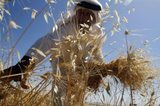
According to a new study by the United Nations Relief and Works Agency (UNRWA) infant mortality, which in most parts of the world is in decreasing, has not declined for the last decade in Gaza. The paper entitled “Stalled decline in infant mortality among Palestine refugees in the Gaza Strip since 2006” was published today in the Plos One journal.
According to the Director of UNRWA’s Health Department, Dr Akihiro Seita, “This is an extraordinary warning sign, an alarming trend in the overall situation not only of health for infants but also the health of entire Palestine refugee population in Gaza.
Moreover, it is a warning sign on the overall social and economic situation of Gaza, as the Palestine refugees account for more than seventy per cent of the entire populations in Gaza. Infant mortality is a barometer of the health of an entire population.”
The new study found that the infant mortality rate among Palestine refugees in Gaza was 22.7 per 1000 live births. This is within the same range of the previously reported rate of 22.4 per 1000 live births in 2015 and 20.2 per 1000 live births from the study conducted in 2006.
“This finding needs our attention since the ultimate goal is to maintain a continuing decline of infant mortality and to stop preventable infant deaths. Gaza was not able to meet the Millennium Development Goal Four for a reduction of under-five child mortality by two thirds. Efforts should be made to achieve the new Sustainable Development Goal target of a neonatal mortality rate of below 12 per 1000 live births in 2030,” said Dr Seita, according to the PNN.
In Gaza, the socioeconomic situation has deteriorated dramatically in the past decade following the imposition of the blockade and subsequent conflicts. The blockade has affected the health sector in Gaza, as hospitals continue to lack adequate physical infrastructure, drugs, supplies, and infection prevention material. It is reasonable to assume that the unstable power supply, the deteriorating functionality of medical equipment, the periodic shortages of essential drugs and medical consumables have had an impact on the quality of medical care with a consequent impact on infant mortality.
According to the Director of UNRWA’s Health Department, Dr Akihiro Seita, “This is an extraordinary warning sign, an alarming trend in the overall situation not only of health for infants but also the health of entire Palestine refugee population in Gaza.
Moreover, it is a warning sign on the overall social and economic situation of Gaza, as the Palestine refugees account for more than seventy per cent of the entire populations in Gaza. Infant mortality is a barometer of the health of an entire population.”
The new study found that the infant mortality rate among Palestine refugees in Gaza was 22.7 per 1000 live births. This is within the same range of the previously reported rate of 22.4 per 1000 live births in 2015 and 20.2 per 1000 live births from the study conducted in 2006.
“This finding needs our attention since the ultimate goal is to maintain a continuing decline of infant mortality and to stop preventable infant deaths. Gaza was not able to meet the Millennium Development Goal Four for a reduction of under-five child mortality by two thirds. Efforts should be made to achieve the new Sustainable Development Goal target of a neonatal mortality rate of below 12 per 1000 live births in 2030,” said Dr Seita, according to the PNN.
In Gaza, the socioeconomic situation has deteriorated dramatically in the past decade following the imposition of the blockade and subsequent conflicts. The blockade has affected the health sector in Gaza, as hospitals continue to lack adequate physical infrastructure, drugs, supplies, and infection prevention material. It is reasonable to assume that the unstable power supply, the deteriorating functionality of medical equipment, the periodic shortages of essential drugs and medical consumables have had an impact on the quality of medical care with a consequent impact on infant mortality.
20 may 2018
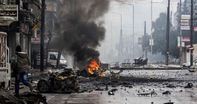
Ten unarmed Palestinian refugees were killed in the unabated shelling on Yarmouk refugee camp in war-torn Syria, a London-based human rights watchdog reported.
A Sunday report by the Action Group for Palestinians of Syria (AGPS) kept record of the death of 10 Palestinian refugees, among them five members of the Nabulsi family.
The list of casualties also includes three family members, killed in air strikes launched by the Syrian government fighter jets and their Russian war abettors on a civilian shelter.
Palestinians stranded in Yarmouk camp have been subjected to dire conditions as a result of the raging warfare and air raids launched on the camp since the outbreak of deadly hostilities in Syria.
The situation has gone far worse due to the absence of ambulance medics and civil defense crews in the area.
Speaking with AGPS, local activists said several residents have died due to the lack of relief services. Dozens more have had an unknown fate as several families have been stuck under the mounds of rubble heaped up in the raging warfare.
The residents of Yarmouk appealed to the warring parties to cease hostilities, announce a humanitarian truce, and open humanitarian passageways so as to enable defense crews to remove dead bodies and evacuate the wounded to Damascus hospitals.
On Friday, the UN expressed deep concern over the safety of refugees in Yarmouk camp for Palestinian refugees and the Hajar al-Aswad area, south of Damascus.
A Sunday report by the Action Group for Palestinians of Syria (AGPS) kept record of the death of 10 Palestinian refugees, among them five members of the Nabulsi family.
The list of casualties also includes three family members, killed in air strikes launched by the Syrian government fighter jets and their Russian war abettors on a civilian shelter.
Palestinians stranded in Yarmouk camp have been subjected to dire conditions as a result of the raging warfare and air raids launched on the camp since the outbreak of deadly hostilities in Syria.
The situation has gone far worse due to the absence of ambulance medics and civil defense crews in the area.
Speaking with AGPS, local activists said several residents have died due to the lack of relief services. Dozens more have had an unknown fate as several families have been stuck under the mounds of rubble heaped up in the raging warfare.
The residents of Yarmouk appealed to the warring parties to cease hostilities, announce a humanitarian truce, and open humanitarian passageways so as to enable defense crews to remove dead bodies and evacuate the wounded to Damascus hospitals.
On Friday, the UN expressed deep concern over the safety of refugees in Yarmouk camp for Palestinian refugees and the Hajar al-Aswad area, south of Damascus.
17 may 2018
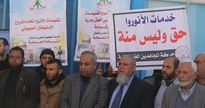
Qatar has announced, on Wednesday, a $50 million donation to the United Nations Relief and Works Agency for Palestine Refugees (UNRWA) in support of basic services for the Palestinian refugees.
This came after signing a memorandum of understanding by Commissioner-General of UNRWA, Pierre Krähenbühl, and Director General of the Qatar Fund for Development, Khalifa bin Jassim al-Kuwari, in Doha.
The UNRWA’s statement asserted that the Qatari donation is very important as it protects Palestinians’ right to basic education services in 2018.
This came after signing a memorandum of understanding by Commissioner-General of UNRWA, Pierre Krähenbühl, and Director General of the Qatar Fund for Development, Khalifa bin Jassim al-Kuwari, in Doha.
The UNRWA’s statement asserted that the Qatari donation is very important as it protects Palestinians’ right to basic education services in 2018.
10 may 2018

UNRWA has declared that it has received a donation worth 10 million US dollars from Turkey in support of its programs.
UNRWA said in a press release on Wednesday that Turkey pledged 26,000 metric tons of wheat in support of nearly one million refugees in the besieged Gaza Strip.
Turkish president Recep Erdogan met with UNRWA commissioner general Pierre Krahenbuhl in Ankara on Tuesday.
According to the press release, Erdogan stressed his commitment to the support of the agency and the Palestinian refugees, saying "we will stand with UNRWA at this delicate time and mobilize our national mechanisms to support its 'Dignity is Priceless' campaign during Ramadan."
Krahenbuhl considered the meeting "a source of encouragement,” and stressed that “UNRWA services for 526,000 students and millions of Palestine refugees must be preserved."
UNRWA said in a press release on Wednesday that Turkey pledged 26,000 metric tons of wheat in support of nearly one million refugees in the besieged Gaza Strip.
Turkish president Recep Erdogan met with UNRWA commissioner general Pierre Krahenbuhl in Ankara on Tuesday.
According to the press release, Erdogan stressed his commitment to the support of the agency and the Palestinian refugees, saying "we will stand with UNRWA at this delicate time and mobilize our national mechanisms to support its 'Dignity is Priceless' campaign during Ramadan."
Krahenbuhl considered the meeting "a source of encouragement,” and stressed that “UNRWA services for 526,000 students and millions of Palestine refugees must be preserved."
7 may 2018
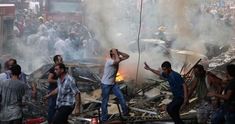
The monitoring and documentation team of the Action Group for Palestinians of Syria on Monday said that 45 Palestinian refugees were killed in April 2018.
The Action Group said in a press statement that 20 Palestinians died of gunshot wounds, 18 died as a result of the bombardments, 3 died in unknown locations, 2 were executed, 2 died under torture in the Syrian regime prisons, one died of sniper shots and another died in an explosion.
The Group pointed out that the victims were distributed across Syria as follows: 35 people died in Damascus, 8 in the suburbs of Damascus, one person died in Aleppo and one refugee died in Deraa.
In a related context, dozens were killed in air strikes targeting posts for armed groups in al-Yarmouk refugee camp and al-Hajar al-Aswad neighborhood south of Damascus.
This was coincided with the outbreak of violent clashes in the same neighborhood and the surrounding areas during which a number of deaths and injuries were reported among the clashing parties.
The Action Group said in a press statement that 20 Palestinians died of gunshot wounds, 18 died as a result of the bombardments, 3 died in unknown locations, 2 were executed, 2 died under torture in the Syrian regime prisons, one died of sniper shots and another died in an explosion.
The Group pointed out that the victims were distributed across Syria as follows: 35 people died in Damascus, 8 in the suburbs of Damascus, one person died in Aleppo and one refugee died in Deraa.
In a related context, dozens were killed in air strikes targeting posts for armed groups in al-Yarmouk refugee camp and al-Hajar al-Aswad neighborhood south of Damascus.
This was coincided with the outbreak of violent clashes in the same neighborhood and the surrounding areas during which a number of deaths and injuries were reported among the clashing parties.
4 may 2018
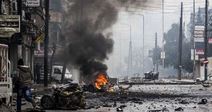
A UN official has accused the Syrian regime of not allowing the delivery of aid to the civilians in the Palestinian refugee camp of al-Yarmouk in Damascus.
Jan Egeland, special adviser to the UN special envoy for Syria, told a news conference at the UN headquarters in Geneva on Thursday after a scheduled humanitarian taskforce meeting.
Egeland affirmed that the war in Syria did not start to be over as some people think, but it subsided in areas and moved intensively to other battle zones, including al-Yarmouk camp.
He pointed out that the Syrian regime forces and militias intensified their military attacks on Idlib province and Yarmouk camp.
“We are asking for access, now, to Yarmouk, we are asking for a convoy to Yarmouk, but we’re prevented from going there, it was actually the place that we were even not approved on our list; we often get a ‘yes’ on the list to go to places and then we are prevented in reality,” he said.
Jan Egeland, special adviser to the UN special envoy for Syria, told a news conference at the UN headquarters in Geneva on Thursday after a scheduled humanitarian taskforce meeting.
Egeland affirmed that the war in Syria did not start to be over as some people think, but it subsided in areas and moved intensively to other battle zones, including al-Yarmouk camp.
He pointed out that the Syrian regime forces and militias intensified their military attacks on Idlib province and Yarmouk camp.
“We are asking for access, now, to Yarmouk, we are asking for a convoy to Yarmouk, but we’re prevented from going there, it was actually the place that we were even not approved on our list; we often get a ‘yes’ on the list to go to places and then we are prevented in reality,” he said.
3 may 2018
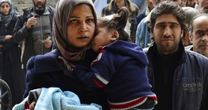
Nearly 60 Palestinian refugees were detained after fleeing the embattled Syria’s Yarmouk refugee camp as the Syrian government escalates its ongoing military operation in southern Damascus.
The Action Group for Palestinian Refugees in Syria affirmed that 60 Palestinians, mostly children and women, were arrested while trying to pass through Arouba checkpoint erected at the entrance to the refugee camp.
Yarmouk residents have appealed for the release of all the detainees who had refused to leave their homes despite the very difficult conditions.
The group also pointed out that violent clashes erupted yesterday in the camp following an intense campaign of air raids as well as missiles and shells.
Yarmouk, which has been besieged by the Syrian government and opposition groups since 2013, was once home to nearly 200,000 people, among them Palestinian refugees, Syrians and others.
The Action Group for Palestinian Refugees in Syria affirmed that 60 Palestinians, mostly children and women, were arrested while trying to pass through Arouba checkpoint erected at the entrance to the refugee camp.
Yarmouk residents have appealed for the release of all the detainees who had refused to leave their homes despite the very difficult conditions.
The group also pointed out that violent clashes erupted yesterday in the camp following an intense campaign of air raids as well as missiles and shells.
Yarmouk, which has been besieged by the Syrian government and opposition groups since 2013, was once home to nearly 200,000 people, among them Palestinian refugees, Syrians and others.
1 may 2018
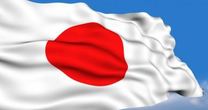
The Japanese government announced on Tuesday a contribution of $10 million to the United Nations Relief and Works Agency (UNRWA) to support the provision of vital services for Palestine refugees affected by the conflict in Syria.
An UNRWA press release said this generous additional contribution from Japan will provide Palestine refugees from Syria health support and emergency cash and food assistance, among other services, through UNRWA’s operations in Lebanon, Jordan and Syria.
UNRWA Commissioner-General, Pierre Krähenbühl, welcomed this timely support: “We deeply appreciate this generous donation from the Government of Japan during this time of urgent need. The $409 million Syria emergency appeal the Agency launched earlier this year remains largely underfunded. This vital support will enable UNRWA to provide emergency aid to Palestinian refugee families affected by the war in Syria.”
Japan has long been a valued donor to UNRWA. In 2017 alone Japan contributed a total of $43.3 million, including some $23 million to the Agency’s core programs and services, $8.7 million to support the Agency’s emergency programs in Syria and the occupied Palestinian territory, and $11.5 million for essential projects.
An UNRWA press release said this generous additional contribution from Japan will provide Palestine refugees from Syria health support and emergency cash and food assistance, among other services, through UNRWA’s operations in Lebanon, Jordan and Syria.
UNRWA Commissioner-General, Pierre Krähenbühl, welcomed this timely support: “We deeply appreciate this generous donation from the Government of Japan during this time of urgent need. The $409 million Syria emergency appeal the Agency launched earlier this year remains largely underfunded. This vital support will enable UNRWA to provide emergency aid to Palestinian refugee families affected by the war in Syria.”
Japan has long been a valued donor to UNRWA. In 2017 alone Japan contributed a total of $43.3 million, including some $23 million to the Agency’s core programs and services, $8.7 million to support the Agency’s emergency programs in Syria and the occupied Palestinian territory, and $11.5 million for essential projects.
30 apr 2018
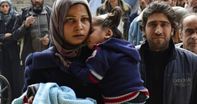
UNRWA is again warning of the catastrophic consequences of the severe escalation of fighting affecting the Palestine refugee camp of Yarmouk in Damascus and surrounding areas.
“Yarmouk and its inhabitants have endured indescribable pain and suffering over years of conflict,” said UNRWA Commissioner-General, Pierre Krähenbühl. “We are deeply concerned about the fate of thousands of civilians, including Palestine refugees, after more than a week of dramatically increased violence”.
UNRWA said the current hostilities have caused deaths and injuries and have displaced around five thousand Palestine refugees from Yarmouk into the neighboring area of Yalda. There are also an unconfirmed number of civilians stranded in Yarmouk, who are in dire need of safe passage from the camp.
The agency said those families who managed to take refuge in Yalda have been forced to sleep in the streets or in makeshift shelters.
UNRWA added that the intense bombing and shelling has damaged thousands of homes. There is no more running water and very little electricity. Yarmouk’s last hospital is now no longer functional.
UNRWA repeated its urgent appeal to all parties involved in the fighting to exercise maximum restraint to ensure that civilians are spared from the violence, and that measures are taken to prevent unnecessary damage to civilian infrastructure.
It called for the immediate granting of safe passage for civilians wishing to leave the camp and surrounding areas and for the evacuation of the injured, the sick and the elderly. International humanitarian law must be respected at all times.
“Yarmouk and its inhabitants have endured indescribable pain and suffering over years of conflict,” said UNRWA Commissioner-General, Pierre Krähenbühl. “We are deeply concerned about the fate of thousands of civilians, including Palestine refugees, after more than a week of dramatically increased violence”.
UNRWA said the current hostilities have caused deaths and injuries and have displaced around five thousand Palestine refugees from Yarmouk into the neighboring area of Yalda. There are also an unconfirmed number of civilians stranded in Yarmouk, who are in dire need of safe passage from the camp.
The agency said those families who managed to take refuge in Yalda have been forced to sleep in the streets or in makeshift shelters.
UNRWA added that the intense bombing and shelling has damaged thousands of homes. There is no more running water and very little electricity. Yarmouk’s last hospital is now no longer functional.
UNRWA repeated its urgent appeal to all parties involved in the fighting to exercise maximum restraint to ensure that civilians are spared from the violence, and that measures are taken to prevent unnecessary damage to civilian infrastructure.
It called for the immediate granting of safe passage for civilians wishing to leave the camp and surrounding areas and for the evacuation of the injured, the sick and the elderly. International humanitarian law must be respected at all times.
28 apr 2018
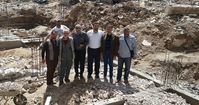
A delegation from the Hamas Movement in Ain al-Hilweh refugee camp visited on Friday the ravaged neighborhood of al-Taira in the same camp and met with local residents and their representatives.
The delegation was composed of senior Hamas officials in the camp, led by its political representative Mohamed Abu Laila.
The Hamas officials started their visit by seeing construction sites in the neighborhood and meeting with some residents, who talked on the suffering they have endured since the 2017 armed clashes displaced them.
For his part, Abu Laila conveyed his Movement’s support for all residents of the camp and stressed the need to protect its security and stability.
The Hamas official said that Ain al-Hilweh camp is one of the important stations of the Palestinian refugees’ return to their homeland, and called for necessarily creating a true political partnership and pooling the national efforts to serve the Palestinian people’s interests and cause.
The delegation was composed of senior Hamas officials in the camp, led by its political representative Mohamed Abu Laila.
The Hamas officials started their visit by seeing construction sites in the neighborhood and meeting with some residents, who talked on the suffering they have endured since the 2017 armed clashes displaced them.
For his part, Abu Laila conveyed his Movement’s support for all residents of the camp and stressed the need to protect its security and stability.
The Hamas official said that Ain al-Hilweh camp is one of the important stations of the Palestinian refugees’ return to their homeland, and called for necessarily creating a true political partnership and pooling the national efforts to serve the Palestinian people’s interests and cause.
26 apr 2018
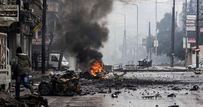
United Nations Relief and Works Agency for Palestine Refugees (UNRWA) warned on Thursday in a press release against the disastrous consequences of the serious escalation of fighting in Yarmouk refugee camp in Syria.
The UN agency expressed its “deep concern” about the fate of thousands of Palestinian refugees in and around the camp.
UNRWA, Commissioner-General Pierre Krähenbühl said that Palestinian refugees at Yarmouk have suffered pain over the long years of conflict, and expressed his concern about the fate of thousands of civilians, including Palestinian refugees, after more than a week of dramatically increasing violence.
UNRWA explained that the current hostilities caused deaths, injuries and the displacement of some 5,000 refugees from Palestine from Yarmouk camp to the neighboring Yilda area. There is also uncertain number of civilians besieged in Yarmouk and in desperate need of a safe passage out of the camp.
UNRWA reiterated its appeal to all conflicting parties to self-control in order to ensure the protection of civilians and to take measures to prevent any damage to infrastructure.
It also called for immediate opening of a safe passage for civilians wishing to leave the camp and neighboring areas and to evacuate the sick, wounded and elderly people from the camp.
It also urged them to observe the international humanitarian law at all times.
Krähenbühl stressed that UNRWA is ready to provide urgently needed assistance in Yarmouk and its surrounding areas when the security situation allows them to access the camp.
The UN agency expressed its “deep concern” about the fate of thousands of Palestinian refugees in and around the camp.
UNRWA, Commissioner-General Pierre Krähenbühl said that Palestinian refugees at Yarmouk have suffered pain over the long years of conflict, and expressed his concern about the fate of thousands of civilians, including Palestinian refugees, after more than a week of dramatically increasing violence.
UNRWA explained that the current hostilities caused deaths, injuries and the displacement of some 5,000 refugees from Palestine from Yarmouk camp to the neighboring Yilda area. There is also uncertain number of civilians besieged in Yarmouk and in desperate need of a safe passage out of the camp.
UNRWA reiterated its appeal to all conflicting parties to self-control in order to ensure the protection of civilians and to take measures to prevent any damage to infrastructure.
It also called for immediate opening of a safe passage for civilians wishing to leave the camp and neighboring areas and to evacuate the sick, wounded and elderly people from the camp.
It also urged them to observe the international humanitarian law at all times.
Krähenbühl stressed that UNRWA is ready to provide urgently needed assistance in Yarmouk and its surrounding areas when the security situation allows them to access the camp.
